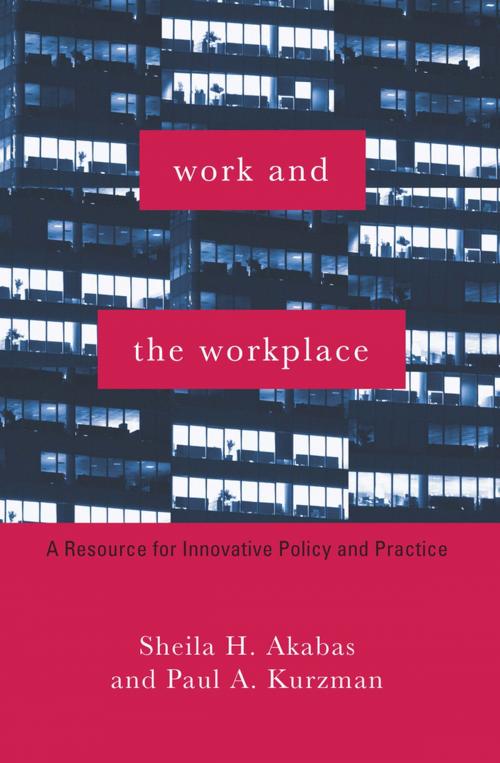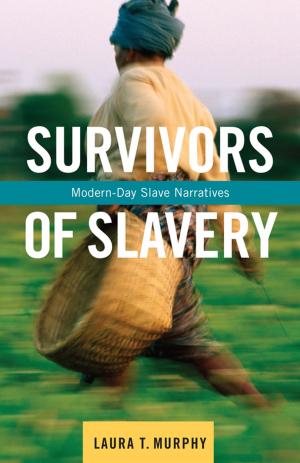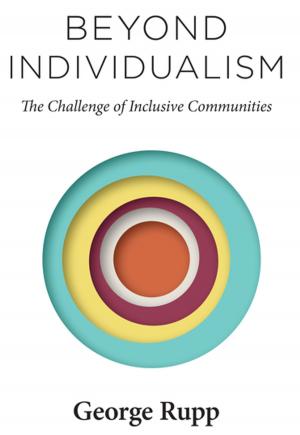Work and the Workplace
A Resource for Innovative Policy and Practice
Nonfiction, Social & Cultural Studies, Social Science, Human Services, Social Work| Author: | Sheila Akabas, Paul Kurzman | ISBN: | 9780231510158 |
| Publisher: | Columbia University Press | Publication: | March 30, 2005 |
| Imprint: | Columbia University Press | Language: | English |
| Author: | Sheila Akabas, Paul Kurzman |
| ISBN: | 9780231510158 |
| Publisher: | Columbia University Press |
| Publication: | March 30, 2005 |
| Imprint: | Columbia University Press |
| Language: | English |
For more than twenty years Sheila H. Akabas and Paul A. Kurzman have written extensively about workers and work organizations, and given leadership to the occupational social welfare movement worldwide. Recognized as leaders in their field, Akabas and Kurzman offer an invaluable and comprehensive look at the innovative ways in which management, labor organizations, government, and social workers can better respond to the needs of workers, their families, and communities.
The authors consider the social, psychological, and economic conditions in the world of work; the domino impact of unemployment upon individuals, families, organizations, and communities; and the inadequacy of insurance, benefit and support systems, intended to respond to personal and systematic crises. They also provide case histories that illustrate how collaboration among management, labor, social work, and government opens new options for workers, their families, and those seeking entry into the workplace.
The authors' discussion provides contemporary illustrations of evidence-based best practices that respond to the needs of the modern workplace. They analyze the barriers to entry into the workforce; the tension between work and family obligations; the sometime unsupportive nature of many jobs and settings; and work implications for persons with chronic or acute illnesses. In the concluding chapter, the authors assess current trends as they offer an optimistic review of the possibilities and positive future potential represented by career counseling, pre-retirement preparation, disability management, executive coaching, manpower programming, and managed care.
Throughout the book, Akabas and Kurzman include case studies to illustrate innovative practice and provide study questions for each chapter.
For more than twenty years Sheila H. Akabas and Paul A. Kurzman have written extensively about workers and work organizations, and given leadership to the occupational social welfare movement worldwide. Recognized as leaders in their field, Akabas and Kurzman offer an invaluable and comprehensive look at the innovative ways in which management, labor organizations, government, and social workers can better respond to the needs of workers, their families, and communities.
The authors consider the social, psychological, and economic conditions in the world of work; the domino impact of unemployment upon individuals, families, organizations, and communities; and the inadequacy of insurance, benefit and support systems, intended to respond to personal and systematic crises. They also provide case histories that illustrate how collaboration among management, labor, social work, and government opens new options for workers, their families, and those seeking entry into the workplace.
The authors' discussion provides contemporary illustrations of evidence-based best practices that respond to the needs of the modern workplace. They analyze the barriers to entry into the workforce; the tension between work and family obligations; the sometime unsupportive nature of many jobs and settings; and work implications for persons with chronic or acute illnesses. In the concluding chapter, the authors assess current trends as they offer an optimistic review of the possibilities and positive future potential represented by career counseling, pre-retirement preparation, disability management, executive coaching, manpower programming, and managed care.
Throughout the book, Akabas and Kurzman include case studies to illustrate innovative practice and provide study questions for each chapter.















